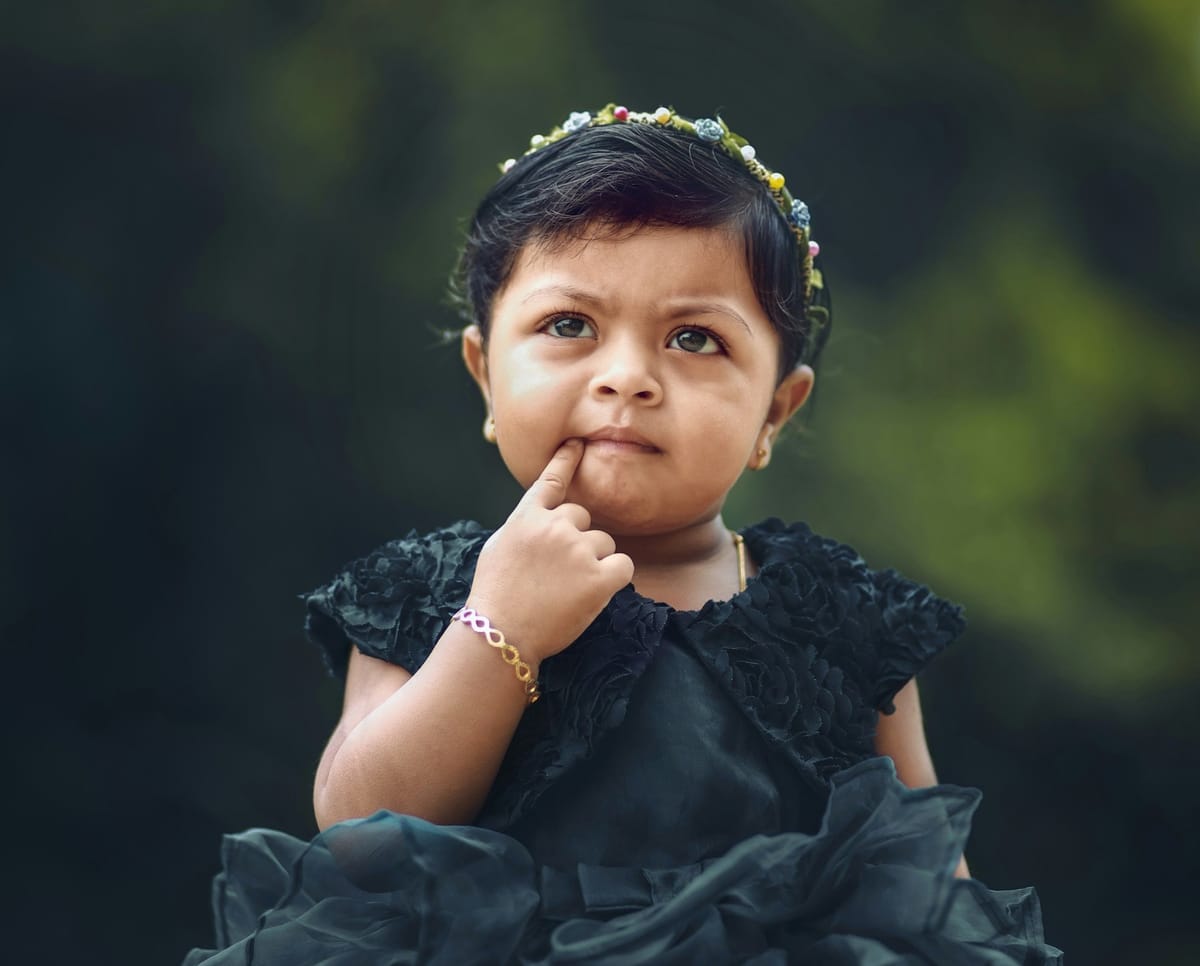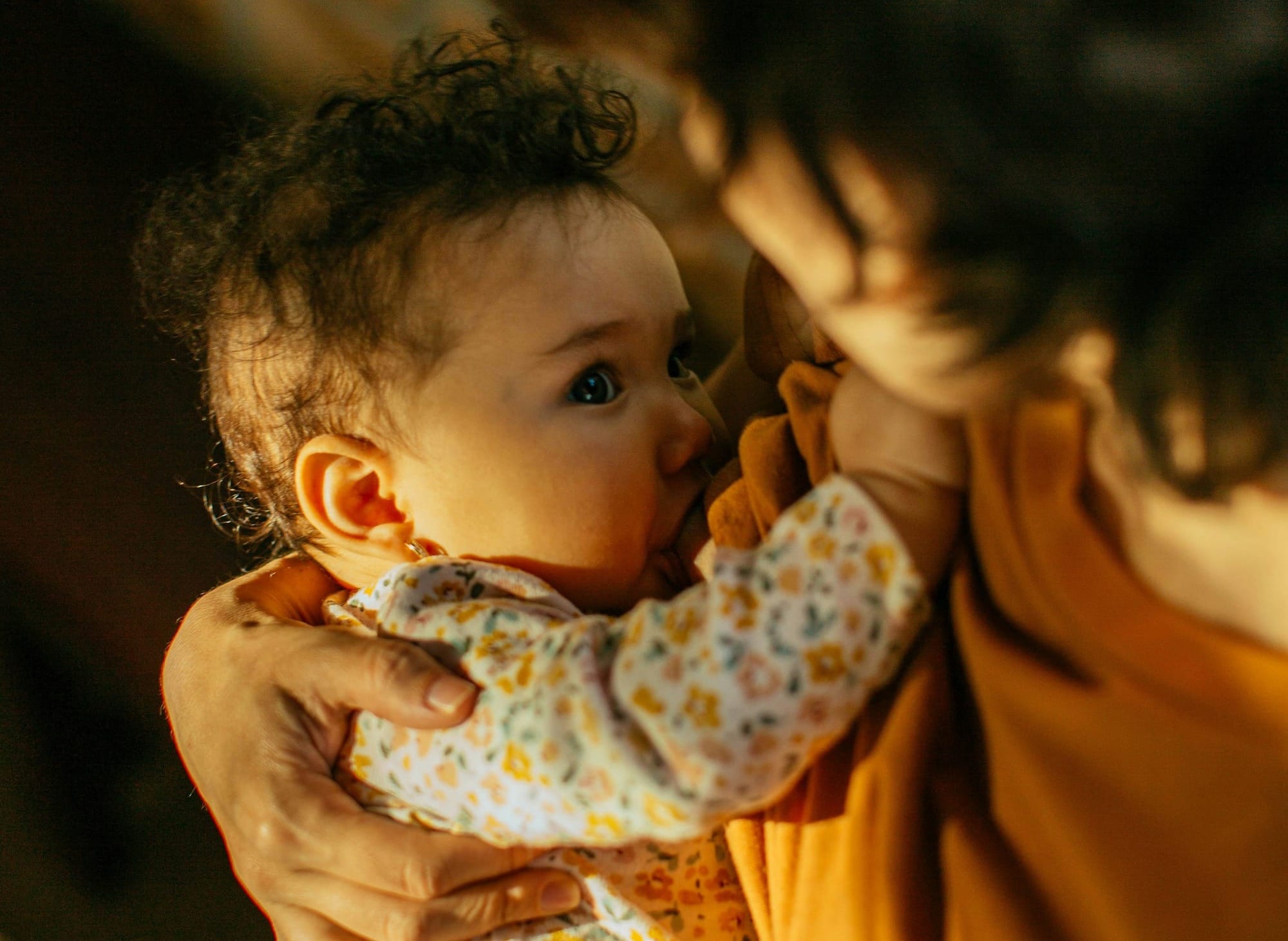So you want (more) grandchildren? Part 2

A while back, I wrote for potential grandparents about the pragmatics around having—or not having—children, promising to get to the ethics. Little did I know how the ethical issues would get inflamed in the intervening time, what with a radicalized antinatalist bombing a fertility clinic and secular pronatalist and typically religious tradwife influencers vying for attention. While I can't get to all the issues, hopefully there will be enough here to initiate conversation and questions. And maybe convince a couple young folks that having a baby is, usually, ethically acceptable.
A short preamble, because some people might wonder why deciding whether or not to have a child would be an ethical question at all. Isn’t the issue instead—take your pick—a religious requirement? a social norm? a biological drive? a personal choice? Well, yes (taking your pick), AND it’s an ethical decision because it impacts other people’s lives. As Canadian philosopher Christine Overall puts it in Why Have Children, “The decision [whether or not to have a child] is not a matter of mere individual preference, for all procreative decisions affect other people, and many individual choices collectively have sweeping social implications.”
Let’s look first at the “sweeping social implications.”

Social implications
One common argument against having children focuses on the sweeping social implication that overpopulation will outstrip the Earth’s capacities, usher in resource and climate disaster, and lead to human misery or extinction. (Alternatively, that children in the developed world are uniquely resource-hogging due to Western lifestyles with similar results.) Having no children, the argument goes, helps avoid these problems, producing the overall best outcome. A nonexistent person does not suffer and will not cause others to suffer: Notably, they will not use up resources that some other sentient creature needs, nor will they further degrade the Earth or contribute to global warming. Of course, if the child did exist, it might make a few people happy—the parents and grandparents, for example. But it might not. And even if the child’s caregivers are happier, they will not be as effective at reducing the world’s suffering as they might have been, because they’ll be busy with the kid. Add all that together, and the result is that it is certainly unethical to have many children (because of the resources and time required). Maybe, with a bit of optimism thrown in, you can get away ethically with one or two.*
Recently, the script has flipped. Today, although climate disaster still looms, the most prominent worry is that shrinking populations will lead to a dearth of workers, unfunded social safety nets, shrinking economies, and, by attrition, human extinction. In that new perspective, it is unethical not to have children, if you are capable of doing so.
Another key social implication of individual choice is that going along with childbearing trends reinforces the trend—in varying directions. Cue 1950s: Everyone’s having kids—Have kids! Cue 2020s: People are pointedly not having kids. Join them! Government might get involved, too, setting the tone via incentives or frank coercion. Such influence/coercion can also go either way—say, by promoting fertility on the one hand or enforcing one-child policies on the other.
In other words, the sweeping social implications change over time, sometimes quickly.
So yes, “…many individual choices collectively have sweeping social implications.” And yes, one must, ethically speaking, take social, political, and environmental contexts into account in childbearing decisions, considering the effects of the decision on others. And yes, in any ethical decision, one needs to make the best choice they can now, not with God-like prescience. Still, the trends can go either way within a generation, not to mention a lifetime: Our collective choices set in motion “sweeping social implications,” not certainties. Because of the uncertainty, these big-picture implications weigh in on the ethical scales of child-bearing decisions, but they aren’t definitive—at least, that’s my view!
Next, the ways “procreative decisions affect other people,” not in such broad strokes, but more personally.
Personal implications
While a child who isn’t born can’t care one way or another about its (non)parents’ decision, an existing child definitely does care—and here, there is some considering to do. Fortunately, it’s often within a parent’s power to give a child a better or worse chance at a good life. It doesn’t take a lot: For millennia, the basics of loving, feeding, and encouraging children have been accomplished even under harsh circumstances. So much the better if the parents can offer more. Still, circumstances might overwhelm parents’ abilities—perhaps war, environmental disaster, famine, or tyranny—so potential parents “have a responsibility to be aware of our potential strengths and weaknesses vis-à-vis childcare,” and to observe “…a threshold of hazard or oppression below which individuals have a responsibility to choose not to procreate.” On the personal level, too, shades of gray.
But David Benatar’s fierce antinatalist argument claims there is no gray: Life is predominantly suffering, so it’s unethical to make more of it. Why? Nonexistent children won’t suffer, and avoiding suffering is “good.” But wait!, you say: Nonexistent children also won’t experience the good in life! Benatar replies: Since an unborn person doesn’t yet exist, there’s no loss: That they won’t experience the good in life is “not bad.” Ethically speaking, he argues, “good” outweighs “not bad” in every case, so no one should have children.
Ouch! And the more one points to specific goods in the world that children and the adults they become would miss out on, the more Benatar points out war, famine, torture, stress, illness, pain, degradation, abuse, etc., etc., and concludes that it’s more ethical that in the long run, by attrition, no people exist. (Benatar does notadvocate bombing fertility clinics!)
Many pronatalist arguments are weak against Benatar’s ethical worries. As weighed against suffering the child does not choose, the parents’ maybe increased happiness, the children’s maybe caring for the next generation in old age, religious obligations (a religious obligation to create suffering??), promises to a partner, duties to parents, to country, to community standards, passing on a name or good genes or even a society—none of these seem to compensate the child (or the wider world) adequately, if Benatar is right about the predominance of suffering.
But is Benatar right that human suffering outweighs human happiness? The vast majority of people don’t kill themselves, so perhaps our suffering isn’t that bad. Indeed, global surveys say that most people are “very happy” or “rather happy”—even in countries lacking basic freedoms and economic opportunity. Maybe Benatar has mis-measured, if only by a little. If that’s the case, then there is at least uncertainty around Benatar’s argument, similar to the uncertainty about the future that makes the common argument less than definitive.

Why babies?
One can also challenge Benatar’s claim that that avoiding suffering is “good,” while missing out on the good in life is merely “not bad.” Why aren’t these opposites parallel, so that it’s also “bad” to miss out on the good things in life? We existing people go for the goodies (so to speak), and that’s what we hope for our children and grandchildren. Indeed, many kinds of good would disappear from the world without people to experience them—notably things we share, such as music, relationships, and ideas. As far as I’m concerned, that would be “bad.” And if the risk of missing suffering and the goods in life are equally weighted, at the very least there’s a much harder calculation to make about how good it is to miss out on the suffering vs. how bad it is to miss out on the good. (Given that Benatar uses having a full bladder as an example of suffering, you can see that the calculation would be both complex and contentious!) That uncertainty again—for both sides!
But in arguing against antinatalist perspectives I think the difficulty of the calculation is ultimately beside the point. Instead, I suspect, we have irreconcilable bedrock assumptions or perspectives, like an optimistic outlook vs. a pessimistic one, or finding life meaningful vs. meaningless. Having held and nurtured my children and grandchildren, I simply cannot take Benatar’s perspective. I expect he can’t take mine, either. The love of parents and children for one another is, I believe, is a form of happiness that’s worth having in the world, even with the risk of suffering it entails.** And in those scales weighing the ethical pros and cons? As Overall puts it, “…the formation of that relationship is the best possible reason for choosing to have a child.”
So the arguments against childbearing don’t convince me. For me, having a baby—or, now that I’m well past that stage, helping along those who are having babies—is a way of participating in that beautiful gift called life.
*Notice that the common argument is consequentialist—that is, it chooses the ethical course by determining which action produces the best consequences. For a classic illustration of how this perspective differs from a deontological one, in which ethical rules are to be followed regardless of the consequences, check out the trolley problem.
**Within reason—some risks are too great.
.